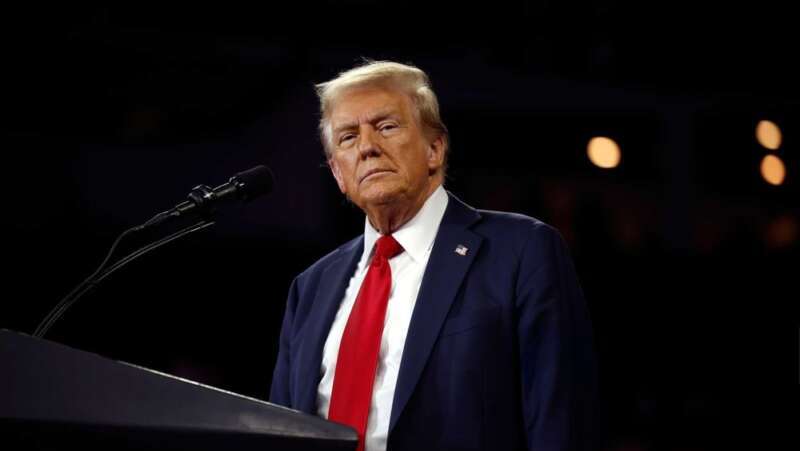
The Intelligence and National Security Alliance (INSA) is calling on the incoming Trump administration to prioritize workforce development, cybersecurity, and the transformative impact of artificial intelligence (AI) technology within the Intelligence Community (IC).
In a Dec. 17 memo, INSA advised President-elect Trump and his incoming administration to focus on two key pillars within the first 100 days: improving the IC workforce’s efficiency and capabilities, and strengthening collaboration and partnerships.
To strengthen the IC workforce, INSA recommends the new administration implement policies that prioritize upskilling and address knowledge gaps as AI technologies continue to evolve at a rapid pace.

“The status quo has led to a shortfall of skilled professionals needed to meet the moment,” the memo reads, adding that maintaining technological and capability superiority is vital for current and future intelligence operations.
INSA also called on the new administration to “launch an IC National Cybersecurity Workforce Initiative,” which would focus on attracting and training the next generation of cybersecurity professionals. This initiative would include expanding scholarship programs, apprenticeships, and public-private partnerships.
“Collaboration with industry leaders and educational institutions will enable the development of targeted training programs to meet cybersecurity skill demands,” the memo reads.
Additionally, INSA highlights progress the Federal government has made with the Trusted Workforce 2.0 (TW 2.0) initiative – launched in 2018 as a whole-of-government approach to reforming the personnel security process and establishing a single vetting system for the U.S. government.
According to INSA, “[TW 2.0] is showing steady progress with the completion of all the major policy elements and is on a course correction for the information technology system critical to its successful implementation across the government.”
INSA recommends that the administration continue supporting the transformation of the personnel vetting process.
In addition to developing an AI- and cyber-savvy trusted workforce, INSA is also calling on the incoming administration to strengthen public-private partnerships.
“Public-private partnerships are essential to the IC’s success in addressing national security challenges,” the memo reads. “The private sector often identifies challenges and delivers innovative, cost-effective solutions more quickly than government efforts alone.”
Specifically, INSA is urging the administration to establish a “high-level joint task force with equal representation from both government and industry,” bringing together experts from security, contracts, acquisition, and policy to tackle cybersecurity challenges and enhance coordination.
This task force, according to INSA, would be empowered to share threat intelligence, coordinate incident responses, and run joint cybersecurity exercises – such as regular tabletop drills – to improve preparedness for real-world cyber incidents.
Additionally, INSA recommends that the new administration also focus on enhancing critical infrastructure resilience – including power grids, roadways and railways, air traffic control systems, water systems, and communication networks – because the disruption of these systems can weaken the United States’ ability to respond to threats and crises.
Among its recommendations, INSA urged the new administration to “mandate the implementation of Zero Trust Architecture principles across all critical infrastructure sectors,” in order to reduce attack surfaces and limit the impact of breaches.
“The strategy also encourages the adoption of advanced cybersecurity technologies, such as AI-powered threat detection and automation, to stay ahead of evolving threats,” the memo reads.
Further, INSA advises the adoption of policies to prepare for unforeseen circumstances, including mandatory data backups and resilient application architectures to safeguard against critical information losses.
“The challenges our nation faces today – ranging from the rise of advanced AI to threats against critical infrastructure and the imperative to maintain technological superiority – are both complex and urgent,” the memo reads, adding that the measures outlined in the document will enable a “leaner, more agile, and effective intelligence community while safeguarding national interests.”
